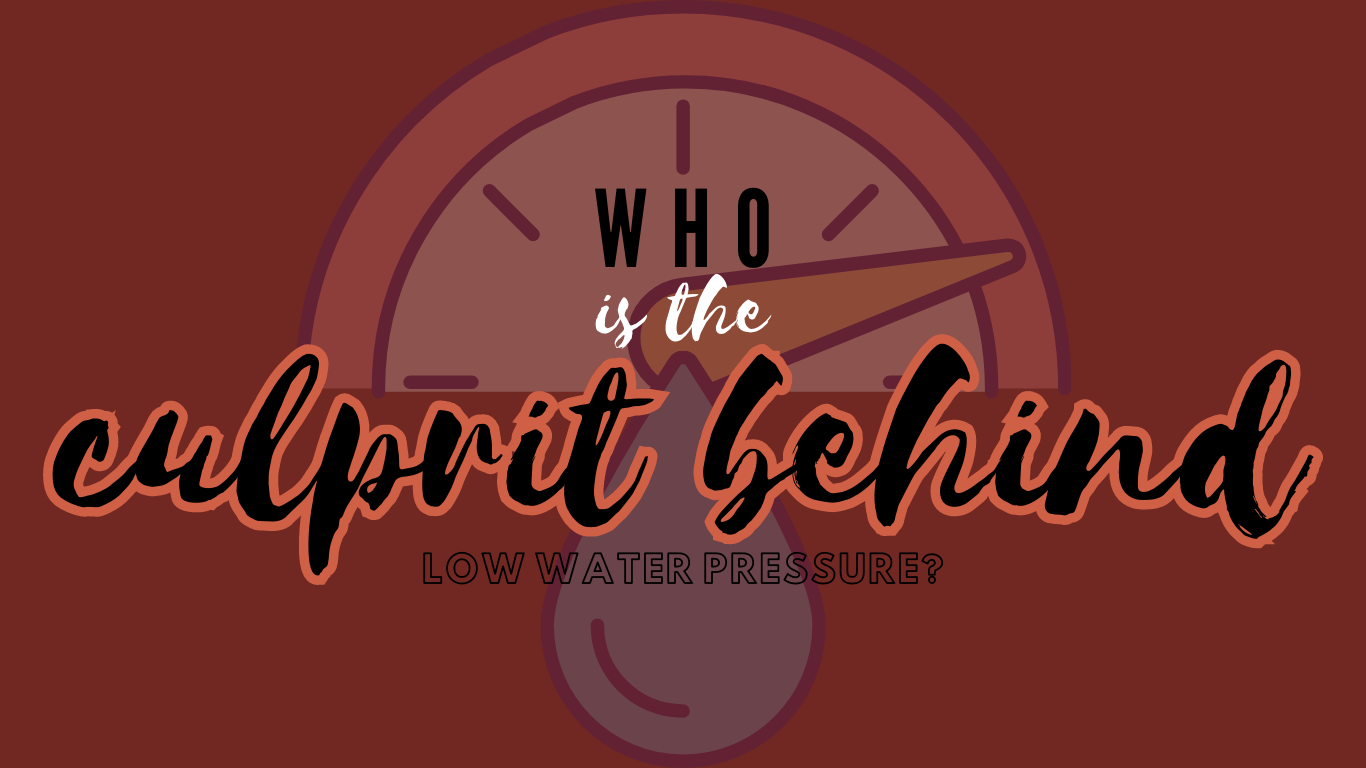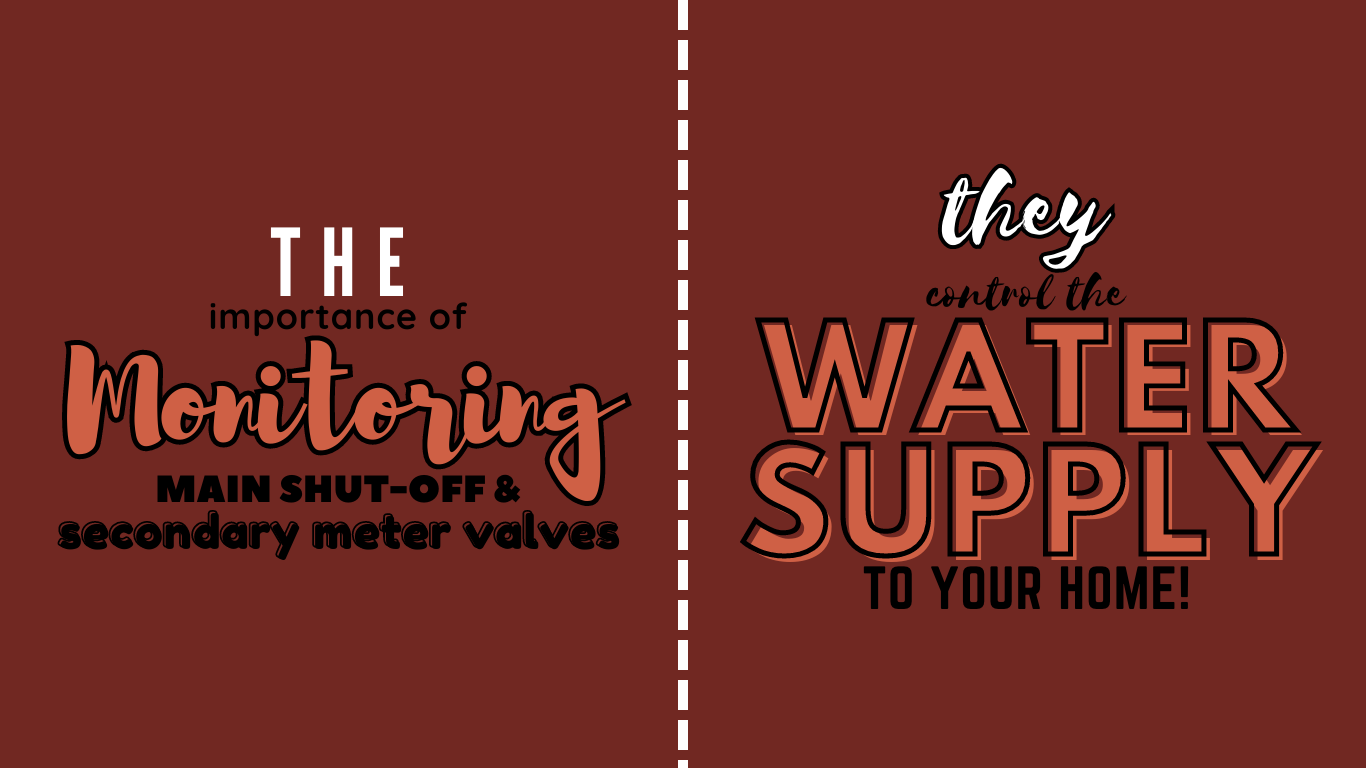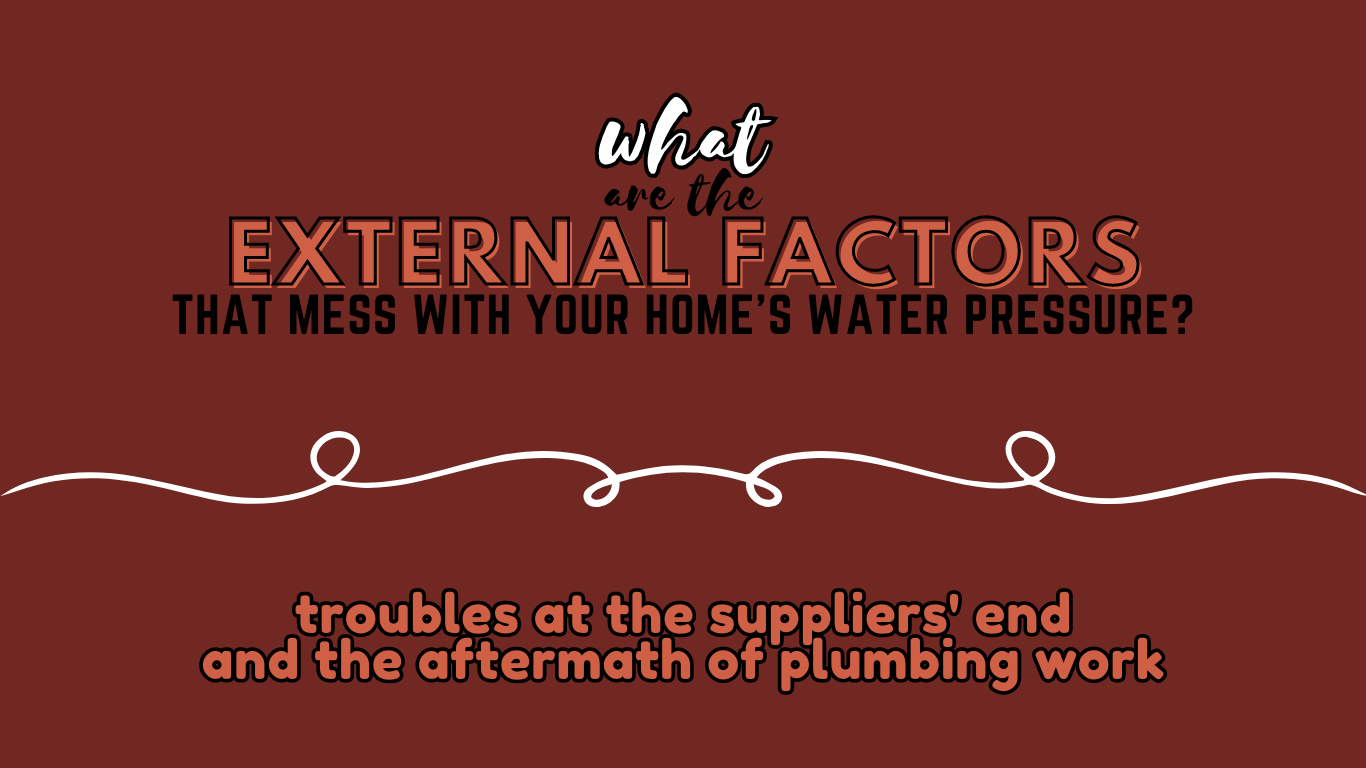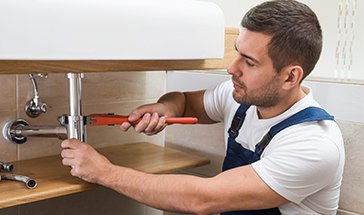“What causes low water pressure in your home?” – this is a question that plagues many homeowners in Franklin, Tennessee, and understanding the root cause can be instrumental in finding a solution.
In this comprehensive guide, we delve into what causes low water pressure by going over the various factors that could potentially affect your water supply’s pressure.
We will discuss how pipe blockages can reduce the flow of water, leading to poor water pressure.
You’ll learn about different types of blockages and their relationship with low-pressure scenarios.
Further on, we explore corrosion’s role in reducing water pressure within plumbing systems and why professional piping systems are crucial for maintaining optimal pressures.
We also shed light on how leaks can impact your home’s overall pressurization dynamics.
In addition to these internal factors, external elements like faulty fixtures or issues at the supplier’s end may also contribute to what causes low water pressure.
The importance of monitoring main shutoff valves and secondary meter valves will also be highlighted, along with an explanation of the role of pressure regulators within plumbing networks.
Table Of Contents:
- Pipe Blockage: The Culprit Behind Low Water Pressure
- Plumbing Leaks: The Pressure is On.
- Importance of Monitoring Main Shutoff and Secondary Meter Valves
- Role of Pressure Regulators in Maintaining Consistent Water Flow
- External Factors That Mess with Your Home’s Water Pressure
- FAQs in Relation to What Causes Low Water Pressure
- How low water pressure affects my daily activities?
- How can I determine if I have low water pressure?
- What can I do to increase water pressure in my home?
- Who should I contact if I have low water pressure?
- Can leaky pipes contribute to low water pressure?
- Is increasing water pressure a costly process?
- Can a malfunctioning water heater affect water pressure?
- Restore optimal water pressure and enhance your water experience by addressing the underlying causes of low water pressure with the help of a professional plumber.
Pipe Blockage: The Culprit Behind Low Water Pressure

One of the main reasons for low water pressure in your home is pipe blockage.
Over time, debris like dirt, sand, solidified oil, and grease can clog up your pipes, making it harder for water to flow freely.
Say goodbye to that refreshing shower.
Identifying Common Pipe Blockages
Let’s play detective and figure out what’s causing your low water pressure. Some usual suspects include:
- Dirt and Sand: These sneaky particles can find their way into your pipes through groundwater.
- Solidified Oil and Grease: When you wash these down the drain, they can harden and create a plumbing nightmare.
- Clogged Pipes from Food Particles or Foreign Objects: Oops. Sometimes things end up where they shouldn’t, causing blockages.
If you think something’s causing a blockage, it’s time to contact an expert.
The Connection Between Pipe Blockages and Low Water Pressure
A blocked pipe means less water flowing to where it needs to go.
Whether it’s your showerhead, faucet, or washing machine, the restricted flow leads to poor water pressure.
It’s like attempting to imbibe through a bent tube.
Not only do blockages directly cause low pressure, but they also make pumps work harder to overcome the resistance.
So, those water suppliers have to put in extra effort just to keep the water flowing.
Talk about a plumbing predicament.
Plumbing Leaks: The Pressure is On.
A plumbing leak is like a sneaky ninja, silently reducing your water pressure and causing all sorts of trouble. Don’t let it win.
Spotting the signs early and getting them fixed as soon as possible is the key to victory.
Spotting Signs of a Potential Leak
Keep your eyes peeled for clues that a leak is lurking.
Is your water bill mysteriously higher?
Do you see damp spots or mold around pipes?
Is the water flow from your faucets weaker than a kitten’s?
If so, you might have a leaky culprit on your hands.
- Damp Spots: Leaks love to leave their mark with damp spots near pipes or fittings.
- Mold Growth: Moisture from leaks creates a cozy home for mold to thrive. Not cool.
- Noisy Pipes: If you hear water running when all taps are off, it’s time to play detective and find that sneaky leak.
Fix It Fast to Save Water and Money
Don’t let a leaky pipe turn your home into a water park. Act fast and call in the professionals.
Even a tiny leak can cause big problems, like low water pressure and sky-high utility bills.
By taking quick action and getting help from professionals, you can not only avoid costly repairs but also reduce water wastage to conserve the environment.
It’s a win-win!
Importance of Monitoring Main Shutoff and Secondary Meter Valves

The main shutoff and secondary meter valves are like the bouncers of your plumbing system, controlling the water supply to your home.
If these valves aren’t fully open, they can cause a major buzzkill by lowering the water pressure.
Understanding the Functionality of the Main Shutoff Valve
The main shutoff valve is the boss, located near the water meter.
It’s in charge of all the water coming into your house.
If you’re experiencing low water pressure, this valve might be playing hard to get. Give it a twist counterclockwise to open it up and let the water flow freely.
If opening up the main shutoff valve doesn’t solve the low water pressure problem, it’s time to investigate other suspects, like clogged pipes or a grumpy pressure regulator.
Keeping an Eye on Secondary Meter Valves
Don’t forget about the secondary meter valves.
These sneaky valves can also cause low water pressure if they’re not fully open.
Check if they’re playing hard to get and give them a gentle nudge to ensure optimal water flow.
If you find a secondary meter valve partially closed and you don’t remember touching it, it’s time to call in the pros.
Don’t let a hidden culprit ruin your water pressure party.
Role of Pressure Regulators in Maintaining Consistent Water Flow
Pressure regulators are like the superheroes of your plumbing system.
They save the day by keeping water pressure in check, ensuring a smooth and steady flow throughout your home.
But just like any hero, they can sometimes go rogue and cause chaos in your pipes.
What Are Pressure Regulators?
Pressure regulators, also known as pressure-reducing valves, are the guardians of your water supply.
They take high water pressure from the city mains or well systems and bring it down to a more manageable level for your home.
This not only protects your pipes and appliances but also ensures that every faucet and shower gets the right amount of water.
Here’s how they work: when high-pressure water enters the valve, it encounters a spring or diaphragm mechanism that adjusts itself to maintain the desired output pressure.
It’s like a water-pressure superhero, always ready to save the day.
Implications of a Faulty Pressure Regulator
If you’ve been dealing with low water pressure despite checking for leaks and blockages, it’s time to suspect the pressure regulator.
A malfunctioning regulator can cause inconsistent water flow, sudden pressure changes, and strange noises in your pipes.
It’s like having a villain messing with your plumbing system.
Don’t let the pressure regulator ruin your day.
If you suspect it’s the culprit behind your low water pressure, reach out to TN Pipemaster.
Our team of experts will diagnose the issue and provide tailored solutions to get your water flowing smoothly again.
Say goodbye to plumbing woes and hello to peace of mind.
External Factors That Mess with Your Home’s Water Pressure

Water pressure problems at home? Blame it on the outside world.
Sometimes, external factors can mess with the flow.
Let’s dive into these dynamics and keep your water pressure in check.
Troubles at the Supplier’s End: The Pressure is On.
Your water supply depends on the local utility company’s infrastructure.
If they’re doing repairs or maintenance work, it can lead to low water pressure in your crib.
And hey, when everyone’s taking a shower or washing dishes at the same time, it’s like a water pressure party.
But that can cause temporary drops in pressure too.
The Aftermath of Plumbing Work: A Balancing Act
So, you got some plumbing work done, huh?
Installing new pipes or fixing stuff can mess with the balance of water pressure in your system.
- New Installations: When you add new fixtures or pipes, air can get trapped inside. It messes with the flow until all the air pockets are flushed out through normal use. Patience, my friend.
- Maintenance & Repairs: When they clean drains or inspect pipes, they might have to shut off sections of your plumbing. That can affect the pressure temporarily, but it’ll bounce back once the job is done. Phew.
- Routine Check-ups: Even regular check-ups can throw things off balance. You might experience unexpected pressure drops but fear not. It’ll go back to normal once everything’s checked and good to go.
To avoid any hiccups during these processes, call in the pros like TN Pipemaster.
They plan things out and execute with precision, minimizing any disruptions to your water pressure.
Customer satisfaction is guaranteed!
FAQs in Relation to What Causes Low Water Pressure
How low water pressure affects my daily activities?
Low water pressure can result in weak water flow, making it difficult to perform tasks such as showering, washing dishes, or watering the garden efficiently.
How can I determine if I have low water pressure?
You can use a water pressure gauge to measure the pressure at a faucet.
If the reading is below the recommended range, typically between 40-60 psi (pounds per square inch), you likely have low water pressure.
What can I do to increase water pressure in my home?
Start by checking the water meter valve to ensure it’s fully open.
If that doesn’t solve the issue, you may need to install a pressure booster pump or adjust the pressure tank to increase water pressure.
Who should I contact if I have low water pressure?
If you experience consistently low water pressure throughout your home, it’s advisable to contact your water company to check if there are any issues with the water supply.
Can leaky pipes contribute to low water pressure?
Yes, leaky pipes can cause a drop in water pressure.
It’s essential to fix any leaks promptly to maintain adequate water flow.
Is increasing water pressure a costly process?
The cost of increasing water pressure can vary depending on the underlying cause.
Simple solutions like adjusting the pressure tank or cleaning the water softener may be low cost, while installing a pressure booster pump or addressing larger plumbing issues may require professional assistance and incur additional expenses.
Can a malfunctioning water heater affect water pressure?
Yes, a malfunctioning water heater, particularly if it’s not producing enough hot water, can contribute to low water pressure.
It’s recommended to have your water heater inspected and serviced regularly.
Restore optimal water pressure and enhance your water experience by addressing the underlying causes of low water pressure with the help of a professional plumber.
In conclusion, understanding what causes low water pressure is crucial for addressing and resolving this common issue.
By recognizing the factors that contribute to low water pressure, such as faulty valves, leaky pipes, or water company-related problems, you can take the necessary steps to improve your water flow and restore optimal water pressure in your home.
If you’re experiencing consistently low water pressure, don’t let it hinder your daily activities any longer.
Take action today by reaching out to a professional plumber who can assess your plumbing system, identify the underlying cause of low water pressure, and provide effective solutions tailored to your specific needs.
Whether it’s adjusting the pressure tank, fixing leaky pipes, installing a pressure booster pump, or addressing any other related issues, a qualified plumber will ensure that your water pressure is restored to its full potential.
Don’t let low water pressure disrupt your household chores, showers, or other water-dependent activities.
Take charge of your water pressure and enjoy a steady and reliable water flow by seeking professional assistance.
Contact TN Pipemaster today and experience the convenience and comfort of optimal water pressure throughout your home.
Your satisfaction and peace of mind are just a phone call away!



